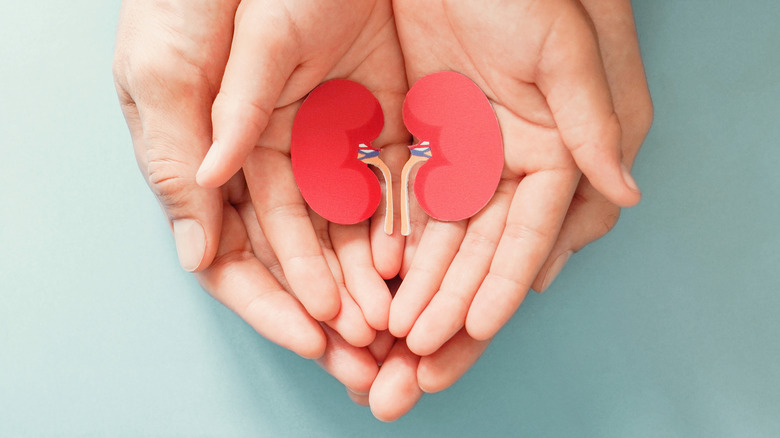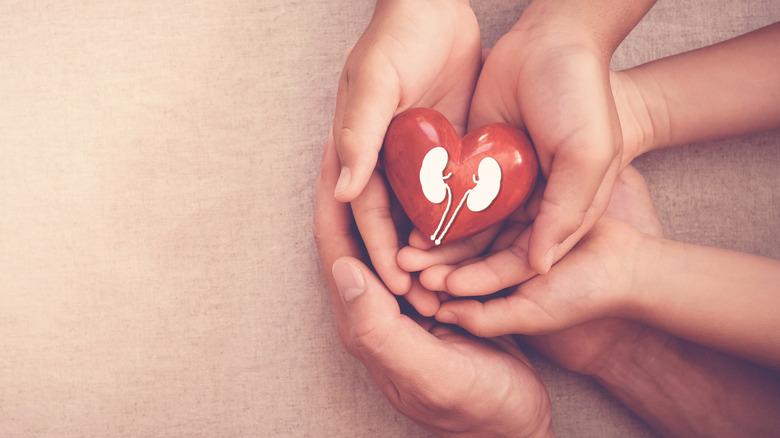The Real Reason Not Everyone Can Donate A Kidney
If you are looking to make a difference in somebody's life, kidney donation is one way to do just that. Kidneys are by far the organ most commonly needed for transplants. In fact, of roughly 120,000 people waiting for organs in 2016, 83% (over 100,000) were waiting for kidneys. Yet only 12,000 people receive a kidney transplant each year, with an average wait time of nearly four years. Many people don't make it that long; nearly 5,000 people die each year while waiting for a kidney transplant, according to the National Kidney Foundation.
A 2005 study published in Kidney International discovered that some people are hesitant to donate kidneys because they believe it would be harmful to their own health. Long-term health effects are not unheard of, but they are relatively rare, says the National Kidney Foundation. In fact, the process may have unexpected benefits for potential donors, with the intense screening process helping to catch some diseases like cancer and diabetes (per Weill Cornell Medicine).
However, a 2014 study by the American Society of Nephrology (via ScienceDaily) found that most American adults wouldn't be allowed to donate kidneys even if they were willing to do so.
Many people can't donate kidneys due to financial issues and health conditions
While it would be easy to say that everyone needs to become a kidney donor, this simply isn't a possibility for many people. Many potential donors are hesitant for financial reasons, including time that they may have to take off of work. This can be a serious issue, but some workplaces do provide paid leave for organ donation, and there are some grants and programs to provide financial assistance to organ donors (per National Kidney Foundation).
Donors also have to be in good health with fully functioning kidneys. Certain medical conditions including hypertension, cancer, hepatitis, diabetes, and HIV can disqualify a person from being a living donor (via National Kidney Foundation). Dr. Anthony Bleyer of the Wake Forest Baptist Medical Center notes (via ScienceDaily) that many of these health conditions are preventable, and that improving the health of the general population would increase the number of people eligible to donate kidneys.


